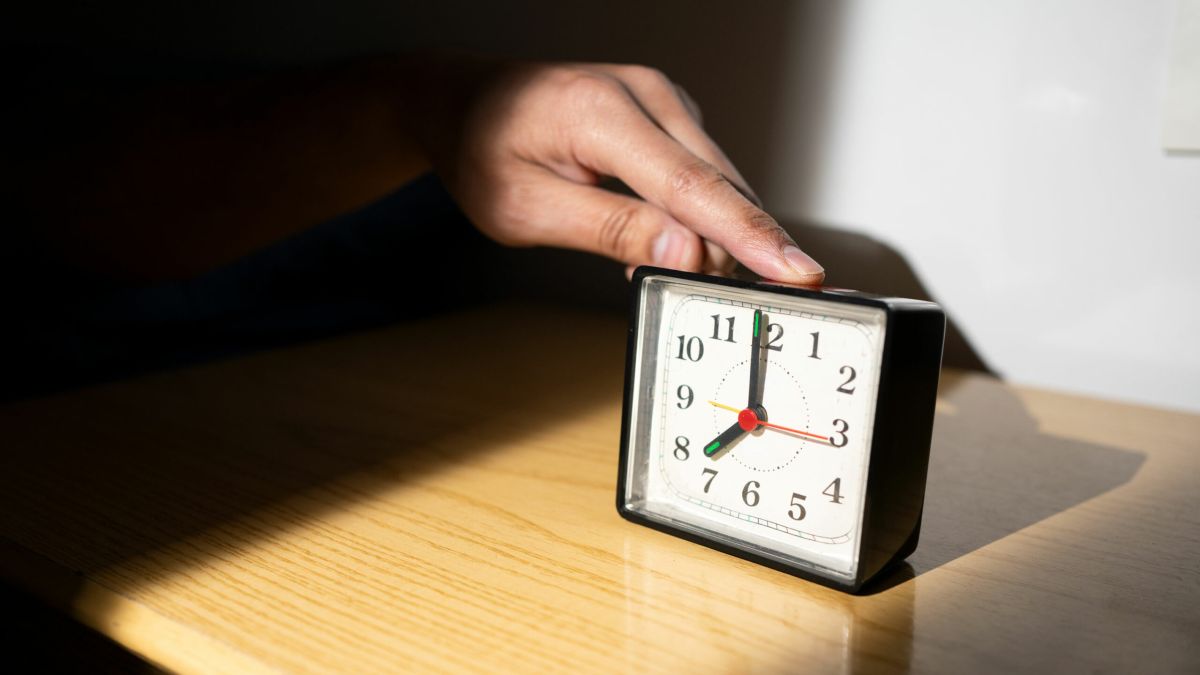The Order in Which Missed Prayers Are Performed
Imām Muḥammad ibn Ṣāliḥ al-ʿUthaymīn


The Ruling of Praying Missed Ṣalāhs in Order and its Evidence
The one who has missed several ṣalāh should pray them in order. For example, if he has missed all five prayers, he should pray Ẓuhr, then ʿAṣr, then Maghrib, then ʿIshāʾ, and then Fajr. The evidence of praying in order is the following:
- The saying of the Prophet (صلى الله عليه وسلم): “The one who misses a ṣalāh due to sleep or forgetfulness must pray it when he remembers it.”1 This command is comprehensive of the ṣalāh itself, the manner with which it is prayed2 , as well as its place in relation to the other ṣalāhs. So, it must be prayed in its proper position in the order of ṣalāhs. For example, Ẓuhr should always be prayed after having prayed Fajr and before praying ʿAṣr. Likewise, Maghrib should only be prayed after having already prayed ʿAṣr and before praying ʿIshāʾ.
- It has been authentically confirmed that the Prophet (صلى الله عليه وسلم) missed four prayers during the Battle of Khandaq, then prayed them in order.3
- In al-Jamʿ [Muzdalifah], he (صلى الله عليه وسلم) combined between two ṣalāhs [Maghrib and ʿIshāʾ], and prayed them in the correct order.
These evidences prove that it is obligatory to observe the proper order when praying missed ṣalāhs.
Valid Excuses Which Forgo the Obligation of Ṣalāh Order
[Q]: Are there any valid excuses that preclude one from having to observe the order of the prayers?
[A]: One may be excused from abiding by this order in two circumstances:
- Forgetfulness: for example, if a person has missed five ṣalāhs starting with Ẓuhr. When he goes to pray them, he forgetfully begins with the Fajr ṣalāh [of the following day] even though that ṣalāh should actually be the last one prayed. We say: His prayer is correct because he has forgotten. Likewise, if he started by praying ʿAṣr before praying Ẓuhr due to forgetfulness, his prayer would also be correct. This is because abiding by the order of the prayers is excused due to forgetfulness. The evidence for this is the encompassing saying of the Most High:
رَبَّنَا لَا تُؤَاخِذْنَا إِن نَّسِينَا أَوْ أَخْطَأْنَا
“Our Lord! Punish us not if we forget or fall into error.”
(Al-Baqarah, 2: 286) - If one is fearful the time for the current ṣalāh will expire. That is, one is fearful that the optional time for the current ṣalāh will expire, then he may forgo the order of ṣalahs. It is even more befitting that he forgoes this order out of fear for the expiry of the extenuation period for the current ṣalāh. An extenuation period, according to the correct opinion, exists only for ṣalāh al-ʿAṣr. As the time for ʿIshāʾ ends at the middle of the night. As for those who take the stance that its period extends until Fajr, they see the period from the middle of the night until Fajr to be an extenuation period.
Worked Examples of the Second Excuse
For example, a man remembers that he missed a prayer but the time left until the shadow of an object is twice its size [i.e., the optional time for the performance of ʿAṣr] is not long enough for him to perform both the ṣalāh he missed and ʿAṣr. What do we say? We would say: Start with the current ṣalāh [ʿAṣr].
Another example: Another man remembers he missed a ṣalāh but the time remaining until sunrise is not long enough to allow him to pray both the ṣalāh he missed and Fajr. What do we say? The answer: Start with the current ṣalāh which is Fajr.
Evidence for the Second Excuse
The evidence of this obligation [to start with the current ṣalāh] is the following:
- Allāh has ordered the performance of the current ṣalāh within its specified time period. If, instead, you pray another ṣalāh [i.e., the missed ṣalāh] you would have extricated the current ṣalāh from its proper time period as well.
- Starting with the missed ṣalāh offers no benefit here. Rather, it actually represents a form of harm. This is because if you were to start with the missed ṣalāh, both ṣalāhs will effectively be prayed after their appointed times. However, if you were to start with the current ṣalāh, then at least this ṣalāh would have been performed during its proper time period, and only the other one would have been performed after its appointed time. This is undoubtedly a better course of action.
Other Valid Excuses: Congregational Jumuʿah Ṣalāh
[Q]: Are there any other valid excuses that would preclude one from observing this order?
[A]: Yes, there are other valid excuses. These include ṣalāh al-Jumuʿah that one cannot pray after its time by himself. So, if one was to remember that he missed a ṣalāh after the Jumuʿah iqāmah is called, and he is unable to pray it and still pray Jumuʿah ṣalāh with the congregation, then he should start by praying Jumuʿah ṣalāh. The reason for this is that missing the congregational Jumuʿah ṣalāh is the same as missing its time. This is because one misses Jumuʿah completely if he misses its congregational prayer, and he is unable to pray Jumuʿah afterwards [by himself] after having missed this congregation.
Other Valid Excuses: Ignorance
[Q]: Is ignorance a valid excuse for not observing the order of ṣalāhs?
[A]: There is a difference of opinion in this issue among the scholars. The apparent stance taken by the composer [al-Ḥajjawī] is that ignorance is not a valid excuse.
For example, if a man was to come to us and say: I have missed Ẓuhr, ʿAṣr, and Maghrib. When praying them, I began with Maghrib, then I prayed ʿAṣr, and then Ẓuhr out of ignorance. We would say: According to the composer, you are not excused from observing this order as he only mentions forgetfulness, and being fearful of the conclusion of the time for the current prayer as valid excuses. There is a difference between a forgetful and an ignorant person. As an ignorant person could be deemed careless for not seeking knowledge, so he should not be excused. In consideration of this, we would say to this man who inverted the order of his ṣalāhs: Pray ʿAsr and then Maghrib again. As for the Ẓuhr, do not re-pray it as it is in its proper place. This will be the case for all matters that have a prespecified order which is inverted. The last article of it will not be repeated as it may be considered the first [in terms of validity]. That which was performed before it was incorrect, but what was performed last would be deemed correct. There are no exceptions to this rule.
The Opinion of Shaykh Ibn ʿUthaymīn (رحمه الله) on Ignorance
Some scholars also say that one may be excused from observing the order of the ṣalāhs due to ignorance. This is because ignorance is the brother of forgetfulness in the Book of Allāh, and in the speech of the Messenger of Allāh (صلى الله عليه وسلم). The Most High said: “Our Lord! Punish us not if we forget or fall into error”. The Prophet (صلى الله عليه وسلم) said: “Indeed, Allāh has overlooked the forgetful and mistaken actions of my Ummah, as well as that which they are compelled to do”. Considering this, the person who does not observe the order of the ṣalāhs due to ignorance should be excused. We would say to him: The ṣalāhs you have prayed were correct. This is the correct opinion on this issue.
Other Valid Excuses: Fear of Missing the Current Congregational Ṣalāh
[Q]: May one forgo the order of ṣalāhs if he fears that he may miss the congregation [for the current ṣalāh]?
[A]: According to the madh`hab, the order of ṣalāhs must be abided. We would say: Start with the ṣalāh you have missed. Then, pray the current ṣalāh with the congregation if you are able. Otherwise, you are not sinful.
Other scholars have also adopted the opinion that one may forgo the order of ṣalāhs in order to pray in congregation. Especially those who have also adopted the opinion that congregation is a prerequisite for the soundness of the ṣalah itself. According to them, one should start with the current ṣalah by praying with the congregation and afterwards pray the ṣalāh he had missed.
Here, the opinion that one may forgo the order of the ṣalāhs if he fears that he may miss the congregation is based on the opinion that one may not pray behind an Imām who is praying a different ṣalāh to him. As for those who deem this permissible, they say: Pray with the congregation but have the intention that you are praying the ṣalāh you had missed. For example, you missed Ẓuhr and find the congregation praying ʿAṣr. We would say to you: According to the correct opinion, join them but intend to pray your missed Ẓuhr. This difference of intention between you and them does not matter. As for those who see a difference of intention to be impermissible, they would say that the order of ṣalāh may not be forgone if one fears that he may miss the congregational prayer.
In summary, there are five situations in which the order of the ṣalāhs may be forgone:
- Forgetfulness
- Fear that the time period of the current ṣalāh will expire
- Fear of missing the Jumuʿah prayer
- Fear of missing the congregational prayer
- Ignorance
The Ḥanbalī madh`hab views the first three to be valid excuses, but not the third and fourth. The correct opinion is that the third and fourth are valid excuses.
Endnotes:
[1] Authentic: narrated by al-Bukhārī: 597 and Muslim: 684.
[2] See article: The Manner of Praying After the Appointed Time.
[3] Authentic: narrated by al-Nasāʾī: 660
Source: Al-Sharḥ al-Mumtiʿ2:143-148
Translated by: Riyāḍ al-Kanadī
Most Popular: Last 30 Days

















